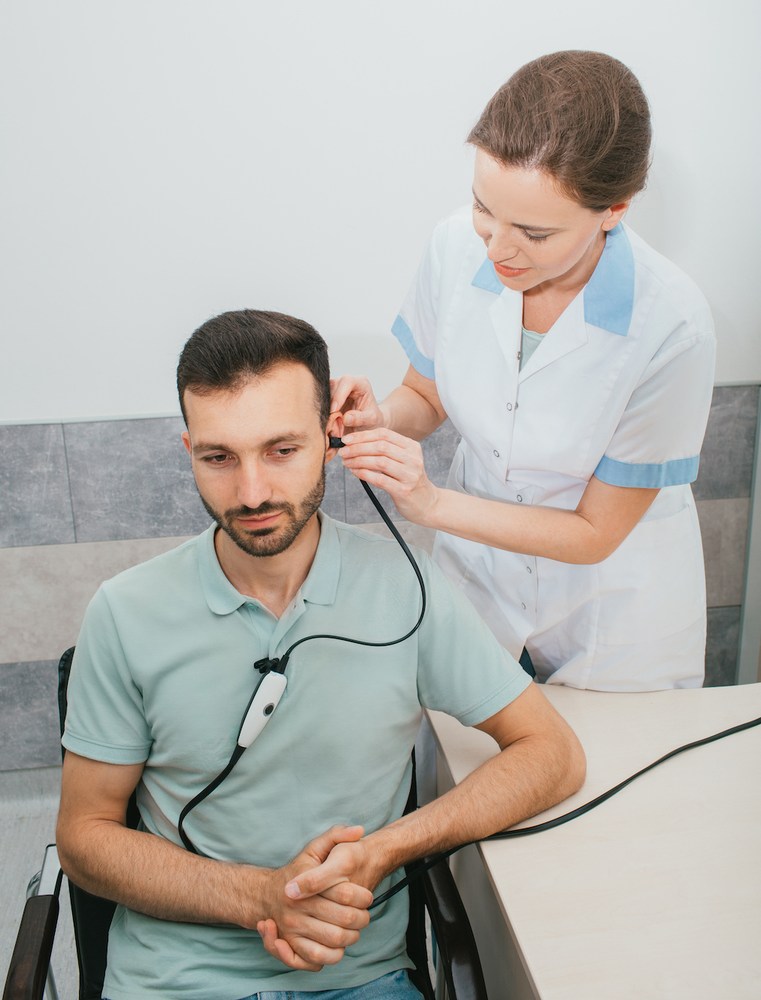Occupational Hazards: Professions at Risk for Hearing Loss
Hearing is an essential part of our daily lives, yet we often take it for

By: admin | July 20, 2023
To implement helpful treatment for any ailment, it’s important to consider the full gamut of effects that particular condition could have. For example, those recovering from an injury will not only treat and aim to heal the injury itself but will undergo several rounds of occupational therapy to increase mobility and strength under purposefully designed and incremental stressors.
Similarly, a prescriptive approach towards treating hearing loss is key. Audiologists will consider it wise to consider the wider lifestyle effects this condition can have and prime you for that. This helps improve any recuperative treatment given.
Hearing loss is experienced by millions of people worldwide. It’s also one of the few conditions that reliably develop with age. As such, communicating the right public health information regarding the effects of this condition is wise. In this post, we’ll discuss the common link between social isolation and hearing loss, how they can influence one another, and how to remedy this issue if you notice it in your personal life.
It’s clear that if you experience untreated hearing loss, it can be difficult to understand communication and speech. While some people may be able to lip-read or use sign language, unless you’re educated in either practice, communication can be difficult to achieve.
Unfortunately, those with hearing loss can sometimes lose their social confidence as a result of this. They may consider themselves less dynamic, engaged or capable in social settings, even if they have a history of being affable and connecting with people.
That’s why it’s important to use assistive listening devices such as hearing aids if recommended by your audiologist, as such devices are designed to help pick up on speech. This, coupled with helpful communication strategies such as prioritizing face-to-face communications, using visual cues and developing support networks, you’ll have a better chance of resuming your social life.
While being socially isolated isn’t a cause of hearing loss, it can exacerbate the symptoms or even contribute to issues you may be experiencing. For example, social isolation is often linked to a lack of auditory stimulation, which is known as auditory deprivation. In some cases, this can lead to a decline in your auditory processing capabilities, even if this can gently reassert itself with the right exposure once more.
It goes to show how sometimes, social isolation can only compound itself and cause further issues. Social isolation may be caused by, or contribute to mental health issues, which can sometimes be linked to reduced auditory processing and difficulties with perception.
The obvious difficulty here is that social isolation can often leave you unable to attend the recuperative services you may need to treat conditions you’re experiencing. If left untreated, this can lead to those conditions degrading over time, limiting the recovery period where intervening treatment could be successful.
That’s why many audiologist services will offer remote, phone call, or in-person visits to help you get up to speed with a potential treatment plan. After all, hearing loss is commonly experienced by the elderly, who may have limited mobility or smaller support networks to contend with.
Many clients refer to a significantly improved quality of life after attending to their hearing loss experience and seeking appropriate treatment and remedies. An audiologist service can help evaluate and analyze the scope of your hearing loss and consider the best recuperative treatments to follow.
This may include implementing and priming the correct type of hearing aid for your needs. They can also help you with onboarding, maintenance, and adjustment as your hearing loss may progress over time.
Knowing you have such a professional outfit willing and able to help you can bring essential peace of mind to anyone experiencing hearing loss. Moreover, resources given for social groups and support networks can be instrumental in helping you understand your diagnosis and remain positive about it.
After all, a problem shared is a problem halved, and so finding that social exposure you may require can be part of the treatment plan itself.
At Hearing Aid Consultants of North Mississippi, we’re more than aware of the various lifestyle challenges that may be influenced by hearing loss. As such, we’re uniquely primed to develop a worthwhile treatment plan, including the possible use of hearing aids and equipment to help amplify vital functions. Please contact us at (662) 234-1337. We look forward to speaking with you!
Tags: hearing loss and mental health, hearing loss symptoms, hearing loss testing

Hearing is an essential part of our daily lives, yet we often take it for
By: admin | January 31, 2024

If you have experienced a difficulty understanding speech, or following
By: admin | December 28, 2023

Forty-eight million Americans are living with hearing loss, which is
By: admin | November 25, 2023
